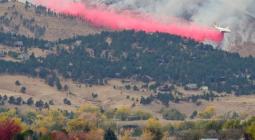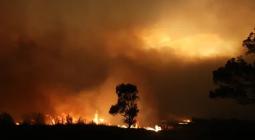Smoke from Australia wildfires destroyed healing ozone layer

Smoke from major wildfires destroys the ozone layer, a study has warned.
The ozone layer is a protective shield in the Earth’s stratosphere which absorbs most of the ultraviolet radiation reaching us from the sun. Without the ozone layer it would be nearly impossible for anything to survive on the planet.
Atmospheric chemists from the University of Waterloo in Ontario, Canada, found that smoke from the Australian wildfires of 2019 and 2020 destroyed atmospheric ozone in the Southern Hemisphere for months. The ozone shield is a part of the stratosphere layer of the Earth’s atmosphere that absorbs UV rays from the sun.
They also warn that the damage could become worse if major fires become more frequent with climate change.
The researchers used data from the Canadian Space Agency’s Atmospheric Chemistry Experiment (ACE) satellite to measure the effects of smoke particles in the stratosphere. The results appear in the journal Science.
“The Australian fires injected acidic smoke particles into the stratosphere, disrupting the chlorine, hydrogen and nitrogen chemistry that regulate ozone,” said Peter Bernath, research professor in Waterloo’s Department of Chemistry and lead author of the study.
“This is the first large measurement of the smoke, which shows it converting these ozone-regulating compounds into more reactive compounds that destroy ozone.”
In the past, human use of substances – chlorofluorocarbons (CFCs) – caused such life-threatening damage to the ozone layer that in 1987, an international treaty called the “Montreal Protocol” was adopted to ban them.
Similar to the holes over polar regions, the smoke damage is a temporary effect, and the ozone levels returned to pre-wildfire levels once the smoke disappeared from the stratosphere. But an increase in the prevalence of wildfires would mean the destruction happens more often.
In 2020 a study found the ozone layer was healing and has the potential to fully recover.
The scientific paper, published inNature, heralded a rare success in the reversal of environmental damage and shows that orchestrated global action can make a difference.
The ACE satellite operations are based at the University of Waterloo, and Bernath is the lead mission scientist. The article, Wildfire smoke destroys stratospheric ozone appears in the March 18 issue of Science.
Author: Samuel Webb






